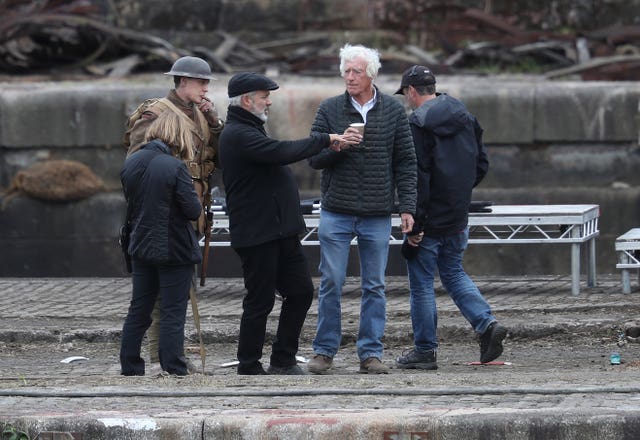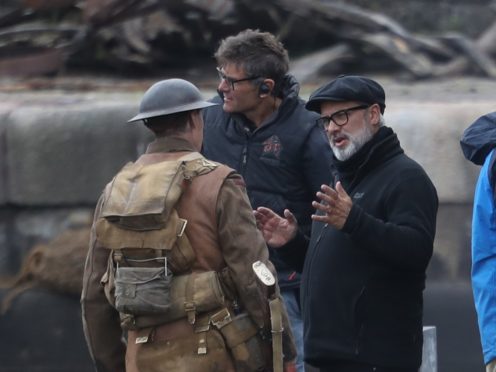Sir Sam Mendes’ First World War epic 1917 has been met with critical acclaim and has been nominated for a string of Oscars.
It was triumphant at the Baftas on Sunday, where it won seven of the nine gongs it was nominated for, including best film, best British film, best director and best cinematography.
The film follows the journey of two young soldiers, played by Dean-Charles Chapman and George MacKay, who venture across enemy lines to deliver a message that could save hundreds of lives.
It is shot as if in one long take, using clever camera work and editing to create a sense of continual motion.
It is nominated for ten Oscars, including best picture, best director, best original screenplay, best cinematography and best score.
#1917Film has been nominated for 10 Academy Awards, including Best Picture, Cinematography, and Directing – Sam Mendes. @TheAcademy #OscarNoms pic.twitter.com/ckEJ6GUtYw
— 1917 (@1917FilmUK) January 13, 2020
It is also recognised for sound mixing, visual effects production design, make-up and hair styling and sound editing.
It marks a return to war films for Sir Sam, who received a knighthood in the New Year honours, and his frequent cinematographer Roger Deakins.
The filmmaker was last nominated for a best director Oscar in 2000, when he won for American Beauty. Deakins won his first Oscar in 2018 for Blade Runner 2049 after 14 nominations.
"Light is one of the greatest ways of telling any kind of emotional story, and Roger Deakins being the master of it, helped this film enormously". Take a behind-the-scenes look at #1917Film and legendary cinematographer Roger Deakins's work. pic.twitter.com/b9jStJ5cec
— 1917 (@1917FilmUK) January 31, 2020
The pair first collaborated on the 2005 drama Jarhead, about a US sniper during Operation Desert Storm.
Since then, Sir Sam has won acclaim for directing the 2012 James Bond film Skyfall, which he followed with Spectre in 2015.
He also made a successful return to theatre directing, where he started out, with the family epic The Ferryman, which won a string of Olivier Awards in 2018.
1917 is a particularly personal film for Sir Sam because it is based on stories told to him by his grandfather Alfred Mendes, who served in the war.

The film is dedicated to his memory, as well as others who fought.
He previously told the PA news agency he felt “not just familial responsibility but also generational”.
He added: “You have a responsibility, it sounds corny, to the men who fell in the war and the generation that was lost and there aren’t many movies made on this scale that are not franchise movies these days.
“To be able to be allowed to make one about the First World War, you do feel there is a responsibility to try and get details right and to make something that feels not like a dry history lesson, not all distant and good for you, but something that is an experience and that is going to make the war feel vivid and like it happened yesterday.”
Sam Mendes picks up Best Director for his extraordinary work for #TheFerryman at #OlivierAwards 🏆 pic.twitter.com/kLyhJJGyYh
— The Ferryman (Play) (@theferrymanplay) April 12, 2018
The director has also said he felt a responsibility to make a film that needed to be seen on the big screen.
He said: “It is not a sequel, it’s not a franchise, and it’s not an animated film, and that is basically 95% of what plays on big screens, or at least on large numbers of big screens now, and I do think it’s important.
“I think you have a responsibility, if you’re a film-maker who is interested in scale, to make a movie that needs to be seen on the big screen.
“I have made movies of all sorts of scale, big franchise movies, but I’ve also made tiny independent films.
“Some of the movies I made I would be fine about being seen on a smaller screen now, because small screens are getting better and television generally is superlative, and so when you do step up and make something for the cinema, you need to make it feel like you’re missing out if you’re not seeing it on the big screen, and that is what is important.”
